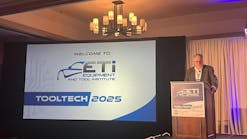DOE launches public-private partnership to deploy hydrogen infrastructure
The Energy Department launched H2USA—a new public-private partnership focused on advancing hydrogen infrastructure to support more transportation energy options for U.S. consumers, including fuel cell electric vehicles. The new partnership brings together automakers, government agencies, gas suppliers and the hydrogen and fuel cell industries to coordinate research and identify cost-effective solutions to deploy infrastructure that can deliver affordable, clean hydrogen fuel in the United States.
"Fuel cell technologies are an important part of an all-of-the-above approach to diversify America's transportation sector, reduce our dependence on foreign oil, and increase our competitiveness in the global market," said assistant secretary for energy efficiency and renewable energy, David Danielson. "By bringing together key stakeholders from across the U.S. fuel cell and hydrogen industry, the H2USA partnership will help advance affordable fuel cell electric vehicles that save consumers money and give drivers more options."
Current members of the H2USA partnership includes the American Gas Association, Association of Global Automakers, the California Fuel Cell Partnership, the Electric Drive Transportation Association, the Fuel Cell and Hydrogen Energy Association, Hyundai Motor America, ITM Power, Massachusetts Hydrogen Coalition, Mercedes-Benz USA, Nissan North America Research and Development, Proton OnSite and Toyota Motor North America.
"The fact that a number of entities are coming together to work together through this partnership is a very positive sign," said Morry Markowitz, president and executive director, fuel cell and hydrogen energy association.
Recent development of the United States' tremendous shale gas resources has not only helped directly cut electricity and transportation costs for consumers and businesses, but is also helping to reduce the costs of producing hydrogen and operating hydrogen fuel cells.
While American automakers and private industry have made significant progress, H2USA will bring experts together to identify and solve key infrastructure challenges, including leveraging low cost natural gas resources.
Through H2USA, industry and government partners will focus on identifying actions to encourage early adopters of fuel cell electric vehicles, conduct coordinated technical and market analysis, and evaluate alternative fueling infrastructure that can enable cost reductions and economies of scale. For example, infrastructure being developed for alternative fuels such as natural gas, as well as fuel cell applications including tri-generation that produce heat, power and hydrogen from natural gas or biogas, may also provide low cost hydrogen for vehicles. In addition, increased fuel cell deployment for combined heat and power, back-up power systems and fuel cell forklifts can help pave the way for mainstream hydrogen vehicle infrastructure.
With support from the Energy Department, private industry and the Department's national laboratories have already achieved significant advances in fuel cell and hydrogen technologies—reducing costs and improving performance. These research and development efforts have helped reduce automotive fuel cell costs by more than 35 percent since 2008 and by more than 80 percent since 2002. At the same time, fuel cell durability has doubled and the amount of expensive platinum needed in fuel cells has fallen by 80 percent since 2005.
